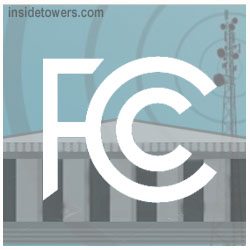
Commissioner Mignon Clyburn said the agency must carefully consider the costs and benefits of such a proposal, specifically whether its adoption, “would increase costs to consumers” who are benefitting from carriers that receive USF money.
Commissioner Michael O’Rielly said “Certain nations do everything possible to improve their economic position,” including things that harm the U.S. “Their deceit does not go unnoticed,” he said, warning of the potential for “nefarious equipment” to be placed in our communications networks.
However both O’Rielly and Commissioner Brendan Carr said the proposed solution should more fully assess the scope of any threats before cutting USF support to carriers that use certain products.
Commissioner Jessica Rosenworcel brought up recent reports about cell site simulators in the nation’s capital potentially being used by foreign companies to spy on Americans. Inside Towers reported this on April 9. They’re said to mimic legitimate cell towers, according to Rosenworcel. “If these reports are true, someone needs to explain how” they are being used without the FCC’s approval, “and this agency owes the public more than silence.”
In its proposal, the FCC asks for public comment on what types of equipment and services should be covered, how to implement the ban, and how to enforce it.
Smaller carriers worry they may be disproportionately affected. Some of them have used Chinese suppliers like Huawei and ZTE, which some members of Congress have singled out as being security risks, a claim the companies deny.
The Competitive Carriers Association said yesterday, it supports the effort and pledged to work with the agency on the issue. However, CCA President/CEO Steve Berry said most small carriers serve “the most costly, remote and hard-to-reach areas” and provide low-income Americans with affordable device options. “Any proposed solution should be cognizant of significant economic hardships on many operators, but also, and perhaps most concerningly, must consider rural and low-income consumers’ choice of viable, affordable devices, in an already very limited market. The government’s actions have injected uncertainty at a time when carriers need stability, and CCA fears this will impact the United States’ efforts to bring wireless broadband services to rural areas and win the global race to 5G.”
NTCA–The Rural Broadband Association is still evaluating how the proposals might affect members. The association stated it’s hopeful the process will identify with precision, any concerns about security of the nation’s networks and address them thoughtfully and appropriately.
April 18, 2018




Reader Interactions